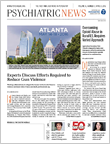Call—one of the most dreaded aspects of residency training. It is often looming over our heads; a thief stealing our sleep, our nights, and weekends, and at times our sanities. Despite the fact that call is one of the most challenging aspects of our training, it can also “give back” in the form of unique learning experiences that leave us feeling accomplished, independent, and confident in our skills as new physicians. Maintaining this cognitive reframe about call is not always easy, but these tips can help you stay on the positive side of the split:
Know your role: Preparing for call starts with knowing the role. Review the “call guide,” talk to senior residents, and ask to follow them (even briefly) on a “buddy call.” Understanding your roles and responsibilities will help you triage and manage multiple situations at once. Some helpful questions to think about:
•
What services am I covering? What is the sign-out process?
•
Who is my backup attending? How do I reach the attendings? What cases do they want and/or need to be contacted about?
•
What types of questions do residents typically receive in each call location?
•
Nuts and bolts: Where do I find the pager? keys? Where can I eat/sleep? How do we track patient encounters?
Remember: your main goal on call is to get patients through to the morning or the next workday safely. You don’t have to (and frankly cannot) solve all of a patient’s problems or nail a complicated diagnosis at 3 a.m. Give thorough sign out to the day team. Team members will pick up where you left off with more time, resources, and rest on their side!
Know your limits: While residency training is often focused on learning to diagnose and treat different illnesses, it is also a time to learn about yourself. Take time to reflect on who you are on call—are you anxious, frustrated, excited? How does stress affect your judgment? The demands of our work can often leave us feeling like we need to be super-doctor, but we are only human. It is natural to have emotional and physical reactions to challenging work situations, especially when sleep deprived. Try some of these strategies to improve your self-care while on call:
•
Pay attention to nutrition: choose healthy meals and water over coffee and fast food.
•
Take short breaks (even if multiple patients are waiting to be seen): even five minutes can help you re-charge and re-focus.
•
Prevent fatigue—get adequate sleep and exercise before call. Reduce use of alcohol and hypnotics for sleep while off-duty.
Know your team: Whenever you are caring for patients, you are working as part of a team. This may be difficult to remember while on call (when staffing is lower and it is easier to feel isolated); however, this is when you need to harness the power of teamwork the most! Lean on your nurses (who may be more familiar with a patient’s baseline or effective management strategies), the primary team (if you are in the consulting role), and medical/surgical consulting services (if your patient is medically ill). Don’t be afraid to ask for help from your attending backup! We are still in training, and we deserve supervision and guidance in moments where we are unsure.
Although it appears daunting, you will survive call—we all do! Your comfort level and confidence will increase with each call you have under your belt. And don’t forget to reward yourself in the morning with a well-earned breakfast and nap.
To learn more about this topic and many others, check out the Resident’s Guide chapter “Sleepless in Psychiatry: How to Survive on Call.” ■
This article is based on information from APA’s
Resident’s Guide to Surviving Psychiatric Training. The guide was written by residents and fellows, for residents and fellows, to help them with the day-to-day challenges of training. The guide offers practical advice on more than 50 topics and can be accessed free
here.

